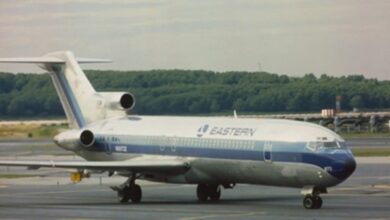From Viva Air to Interjet: Is There a Crisis in the Latin American Low-Cost Airline Market?
With the cessation of operations of Viva Air, Ultra Air, Interjet and Aeromar, the low-cost airline market faces distrust from investors and users, but is it really a crisis of the business model? .

Photo: EFE
LatinAmerican Post | Luis Angel Hernández Liborio
Listen to this article
Leer en español: De Viva Air a Interjet: ¿Hay una crisis en el mercado de las aerolíneas low cost latinoamericanas?
The serious problems faced by the Colombian Viva Air and Ultra Air are added to those of the Mexican Interjet and Aeromar that show a crisis in low-cost airlines in Latin America. The nature of the civil aviation market and the problems derived from the health and economic crisis have put many airlines around the world in crisis. However, there are also other problems for which some Latin American airlines are in trouble.
Viva Air and Ultra Air, the Colombian Market in Crisis
In the midst of the pandemic crisis, Avianca turned to the US authorities to file for Chapter 11 of the Bankruptcy Law, which does not necessarily imply bankruptcy. On the contrary, it is used as a tool by companies to restructure their debts, renegotiate and establish a plan to get out of the crisis and continue operating. Airlines such as LATAM and Aeroméxico also resorted to this option to restructure to survive.
However, low-cost airlines (ABC) were no strangers to the crisis in the aviation sector, the nature of this industry and the difficulties generated by the pandemic pushed them to the limit. Avianca acquired the assets of Viva Air, which was in a critical situation. The concern is that, although the purchase has already been approved by the competition authorities, there is an appeal on said purchase that keeps the process in limbo. Meanwhile, Viva Air remains on the ground until it is clearly determined what will happen with the purchase by Avianca. Also, competitors such as Ultra Air and Wingo are facing the crisis, the former has been grounded since the end of March and Wingo has taken actions such as canceling its Bogotá – Mexico City route to boost its position in the Colombian market. As a result, it has become the only ABC operating in Colombia.
Interjet and Aeromar, Poor Management
Aeroméxico, the main Mexican airline, declared bankruptcy under Chapter 11 of the US bankruptcy law, with this it sought to face the health and economic crisis. But, in the ABC market, Interjet and Aeromar ended their operations, in the case of Interjet it was an important competitor at a national and international level, but in December 2020 the financial crisis reached the airline that ended its operations. The debts in fuel, rent, salaries and other items made the company inoperable. Now, in 2023, the bankruptcy has been declared final and the sale of its assets has been ordered to pay off its debts. Aeromar stopped its operations in February 2023, after months of crisis in which it accumulated debts with airport authorities and suppliers, with which both airlines strengthened the dominant position of Viva Aerobús and Volaris in the Mexican ABC market.
Although the situation of Viva Aerobús and Volaris is not the best, they have remained operational and relatively unaffected by the crisis. In the case of Viva Aerobús, it has one of the youngest fleets in the region and with sustained growth thanks to its participation in the international market with flights to the United States and South America. It is the same case of Volaris that since July 2022 reaches Lima, Peru. Why did these two airlines stay afloat while Interjet and Aeromar didn't? The deficient administration of the latter generated millions in losses and debts that ended up slowing down their growth, even their managers are being investigated for illegal practices, so the health crisis produced problems that corruption turned into an insoluble problem. The Mexican government refused to rescue companies, including airlines, because it considered their protection unfair in the context of accusations of illegal practices.
You can also read: Colombia: Air Crisis before Easter
The ABC Challenge
The ABC business model offers passengers a tailor-made trip. That is, paying only for what the user considers necessary. Seats, checked baggage, meals, priority boarding, and itinerary changes are optional. The passenger can simply choose to fly with the minimum and at the lowest possible price or fly more comfortably with a higher price, although it is usually cheaper than regular airlines. The growth of ABC such as Viva Aerobús, Volaris, JetSmart, Azul, Flybondi and SKY Airlines shows a competitive environment in the domestic and international markets, with a clear dominance of Chilean and Mexican airlines. The success of LATAM, JetSmart and SKY in South America is notorious, since they have expanded through their subsidiaries to the most important markets in the south.





